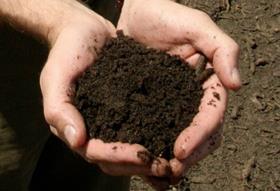
Soil health has been catapulted onto government agendas thanks to a parliamentary launch of the new Sustainable Soils Alliance.
A diverse group of MPs, representatives from policy, industry, NGOs, farmers, charities, land owners and banks met at the House of Commons this week for the official launch of the new alliance, designed to lobby collaboratively to improve the UK’s soils and protect the future of food production.
The event was given further prominence by the attendance and keynote speech by Defra secretary of state Michael Gove, who said the state of soils is “an emergency”.
“Countries can withstand amazing things. They can withstand coup d’états, they can withstand wars and conflict, they can even withstand leaving the European Union. But what no country can withstand is losing its soil and its fertility,” he said.
“Therefore, there is an emergency. The signal is at red, alarm bells are ringing, and we have heard it at Defra. We know we need to go further to restore health to our soils.”
Rebecca Pow MP, who hosted and chaired the event, said: “Without healthy soils, we can’t produce health or sustainable foods. It holds carbon, it helps our climate change mitigation, it prevents flooding. And it’s simply not talked about enough. It’s been grossly underestimated for far too long.
“In some parts of the country, in the south east, it’s estimated we’ve only got about 100 harvests left. Some say it’s only 60 before we can’t produce any food because our soils have become so unproductive. That has a direct cost to the nation.”
Helen Browning, chief executive of the Soil Association, praised the growing awareness of soil health that has led to such a widespread collaboration being formed. “Just four years ago, the Soil Association had real qualms about running a public-facing campaign on soils. Now it feels like soil is the hot topic everywhere. Not perhaps on the high street yet, but I’m sure it’s coming,” she said.
Discussing what steps should be taken to improve soil health, Browning noted the government’s commitment to meet the ‘four per thousand’ target, which aims to increase soil organic matter by 0.4 per cent each year. “In order to achieve that, the kind of approaches organic farmers take, such as returning organic matter back to the land, need to become the norm,” she said.
Planting more trees, reducing compaction, and re-introducing soil monitoring would also help, according to Browning. “We need to be rewarding farmers for sequestering carbon in their soils. If we do that, we solve a whole load of problems together. Finally, we need to protect our remaining lowland peat,” she added.
Other speakers at the event included Greenpeace chief executive John Sauven, and chief executive of the Sustainable Foods Trust, both of whom noted that Brexit offers a new opportunity to more closely align British farming and the protection of the environment.
Holden said: “I think the golden opportunity, in this post-Brexit environment, is to take pillar one payments and attach to that conditions that reward farmers for rebuilding the lost stores of carbon. I think there are ways of doing that.
“There is an opportunity here for the UK to lead the world in soil carbon stewardship, and change farming at scale in relation to soil fertility.”



